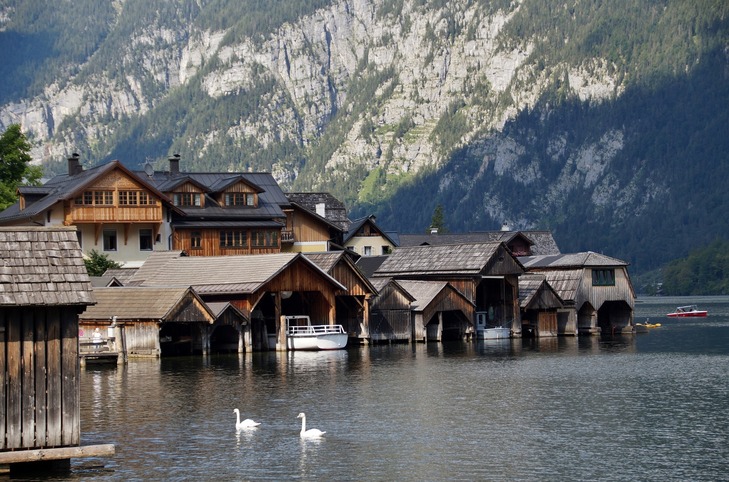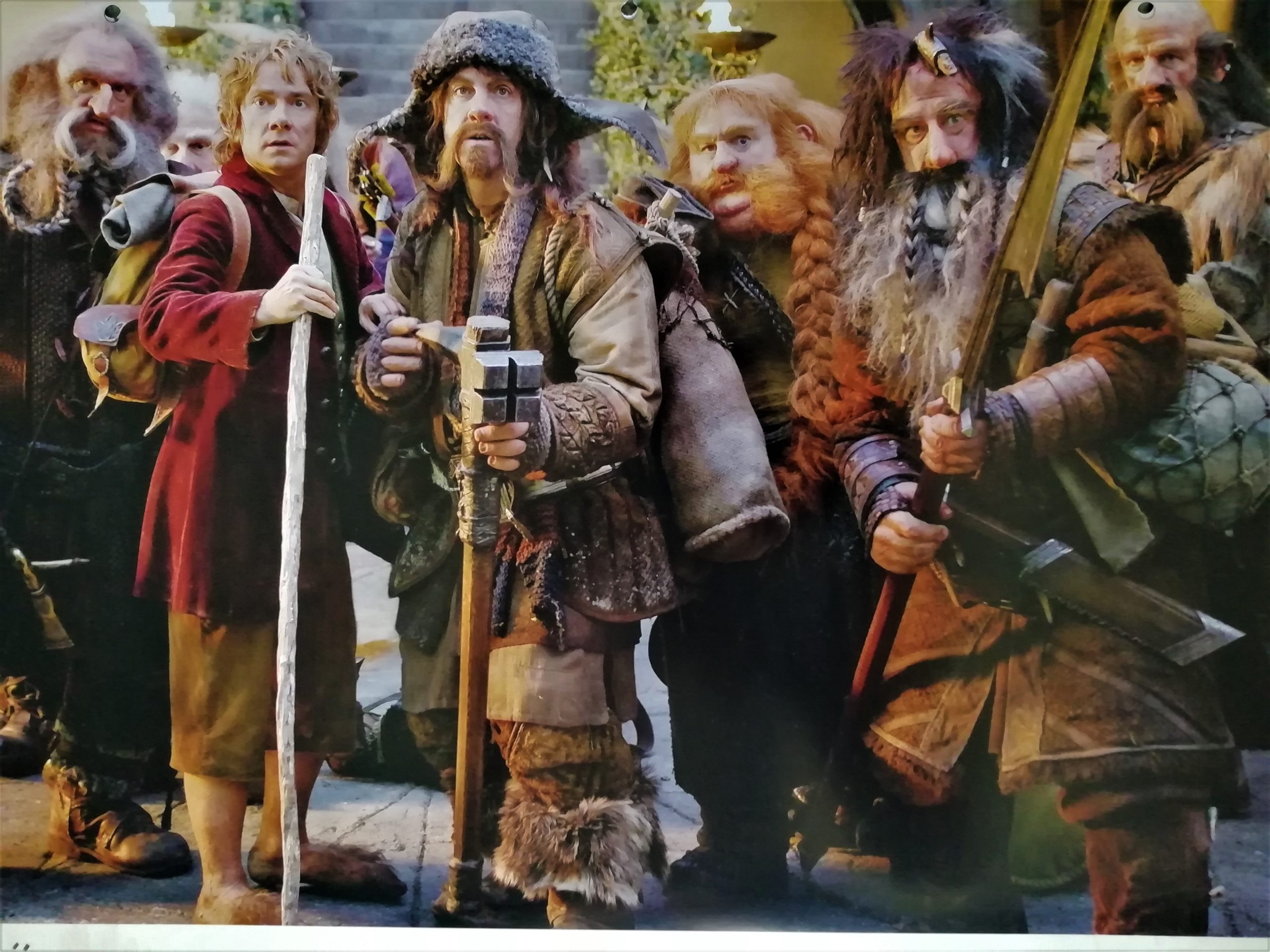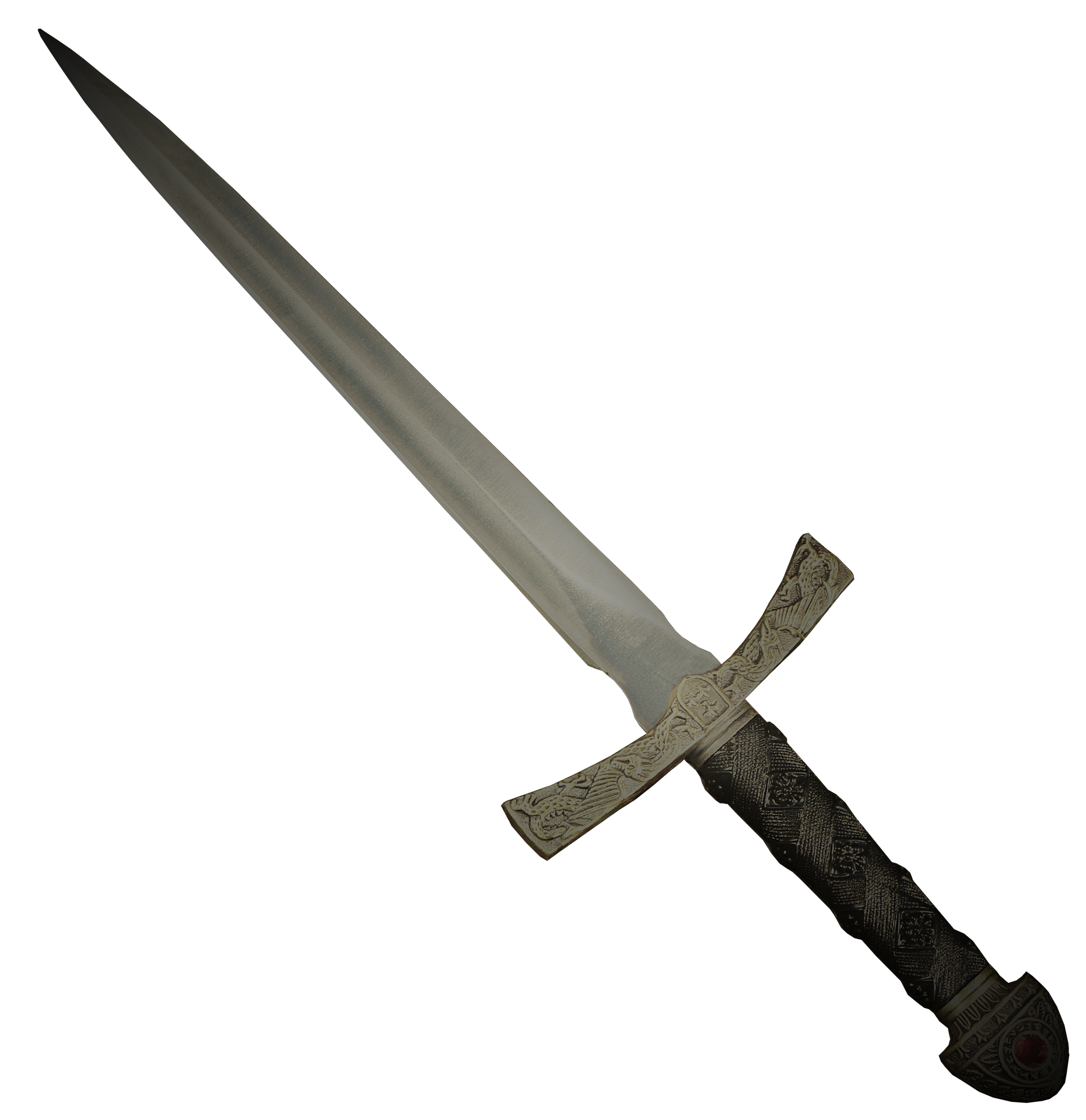The wide shot of Lake-town reveals a staggering amount of work the digital wizards of Weta Digital have conjured up. It is not only intricately done in houses’ placement, level of deterioration due to water, or the destitute look of it all, it has also an atmosphere that is mysterious as well as unwelcoming.
The sets through which Bard and the Dwarves walked or rowed through were built in the backlot of Stonestreet Studios together with massive amounts of water they pumped from the Wellington bay. It was a massive feat of creative as well as engineering work. It paid off hugely on screen, giving the audience the best look possible into the world of Men, the only one we encounter in The Hobbit.
Master in nightgown
Alfrid: “All this talk of civil unrest. Someone’s been stirring the pot, sire.”
The Master: “Oh, oh!”
Alfrid: “Gout playing up, sire?”
The Master: “It’s the damp. It’s the only possible explanation. Get me a brandy.”
Let us all together meet the Master of Lake-town, in his nightgown. He had just woken up in a foul mood, knowing what waits for him outside of his own 4 walls, and having his stomach turn on him in acid refluxes. The only way to help himself is to start his day with alcohol, brandy to be exact.
The Master isn’t even capable of taking the blame for his own stomach issues and his home remedies as cures. He blames it all on the dampness of the Lake-town.
Ugly commoners
Alfrid: “The mood of the people, sire, it’s turning ugly.”
The Master: “They’re commoners, Alfrid. They’ve always been ugly. It’s not my fault they live in a place that stinks of fish oil and tar. Jobs, shelter, food. It’s all they ever bleat about.”
The Master is a bitter, old man clinging to his youth and looks as if it were possible to reverse back to his previous state. He keeps a portrait of himself beside his bed on which his hair is long, ginger and flowing over his shoulder. He is slimmer, tauter and somewhat younger.
It could have also been that he had the painting painted by someone he could manipulate into painting exactly what he wanted and not what the painter was seeing in front of him. He considers himself as beautiful now as he was in the painting, describing other people of Lake-town as ugly.
To persevere in his role as Master, or rather as he thinks a Master should be like, he has to find ways to heighten his own sense of self and loiter it over others. If he did not, that would mean he was the same as everybody else and he would not be able to live like that. It is important for him to feel supremacy over his constituency.
Alfrid
Alfrid: “It’s my belief, sire, they are being led on by troublemakers.”
Master: “Then we must find these troublemakers and arrest them.”
Alfrid: “My thoughts exactly, sire.”
Alfrid is the kind of character who stirs unrest. The one threat that Bard mouthed to him in order not to have the barrels emptied over the side of the barge, thereby revealing the Dwarves, Alfrid had taken as the opinion of the people, as a beginning of a revolution. The truth is far from it, seeing as how Bard only means to stay within his four walls, do his job to provide for his family and not involve himself in any political or social issues. He is not interested in leading a revolution or going against the grain.
Alfrid, nevertheless, uses this one little sentence Bard uttered as a means of change leading to the stricter rule of his Master. If Alfrid as a counselor to the Master tells of possible riots, then it is up to the Master to prosecute and arrest whoever he thinks is responsible, without any shred of evidence that that is the reality of the situation.
Nevertheless, it is important for the Master as well as for Alfrid to keep their positions as they are, above others. Which is precisely why they need to nip any talk of change in the bud. It is all about self-preservation.
Alfrid makes himself, outside of the Master’s Hall, as important as the Master himself. It is obvious he strives to be of significance to the Master as well as to the people. He wants to be feared by the people and appreciated by his Master, the same as the Master wants for himself. In his position as a counselor, he makes a point of interfering in the daily business of the town, making sure everything is done by following the letter of the Master’s law.
Egg yolk stunt
What the film does not show us is how exactly Alfrid had gotten the egg yoke stuck on the shoulder pad of his coat. This scene was meant to be shot where an egg would fly into Alfrid’s shoulder from behind the camera, thereby depicting the opinion of the people of Lake-town toward him.
PeterJackson was, of course, the one to throw eggs at Alfrid from a distance. Every time they shot the scene the egg would miss its mark. Luke Evans (Bard) tried his luck to fulfill his director’s wish but the only thing he managed to do was to hit Alfrid in the head, which for shooting purposes wasn’t the goal they have been striving for.
Peter Jackson decided to smear an egg into his shoulder up close. The costume and makeup department made it even more noticeable with their touch-ups, leaving Alfrid with a yellow yolk stain on his coat.
It was all in jest, as it always is with Peter Jackson with a hint of sadism toward his actors.
Supressing democracy
Master: “And all this talk of change must be suppressed. Can’t afford to let the rabble band together and start making noises. The next thing you know, they’ll start asking questions, forming committees, launching inquiries.”
Alfrid: “Out with the old, in with the new?”
Master: “What?”
Alfrid: “That’s what they’ve been saying, sire. There’s even talk of an election.”
Master: “An election? Heh. That’s absurd. I won’t stand for it. Ha!”
Alfrid: “I don’t think they’d ask you to stand, sire.”
The Master’s sense of propriety is more akin to that of a child rather than a respected leader. To pull his underwear out of his bottom while his counselor walks behind him is rather unwelcome. It is probably nothing new to Alfrid, but still not something one should be privy to. The creative team along with Stephen Fry made these executive decisions to make the Master of Lake-town as disgusting as possible, thereby depicting a leader’s characteristics hyperbolically.
Seeing as how the mention of election brings fear into the Master’s eyes, indicates that he appointed himself Master of Lake-town rather than having been voted in democratically. To give the people a chance at electing their new leader as opposed to having one pushed on them again, would be a step in the right direction.
However, as it is, the Master is prepared to tear down anyone who would dare to propose such a thing as a democratic vote, thereby securing his seat in the Hall for a while longer.
Mountain oysters
Master: “Shirkers. Ingrates. Rabble rousers. Who would have the nerve to question my authority? Who would dare? Who…? Bard. You mark my words: that troublemaking bargeman is behind all this. No one else would have the…”
Alfrid: “Bollocks, sire. Ram and goat, sautéed in a lovely little mushroom gravy.”
In a tizzy, the Master exits the room and runs onto the balcony surveying the houses and people as if trying to find that one person who looks to defy his authority. As soon as his thoughts focus on this one single search one name comes to mind, the same name that Alfrid had obliquely suggested not that long ago.
Bard is a threat to the Master. Since there could be no one else in town that would dare to question the authority of the Master, it directly implies that Bard has the courage to do just that. A worthy opponent to the Master, one that the Master fears would be capable of replacing him, seeing as how the people look up to him.
I find it very comical, the way the Master’s monologue ends in “bollocks”. It is the word that would ideally conclude his thoughts on the matter. Subsequently, it is the meal that Alfrid had prepared for him. A very palpable ending to a rant.
Fabricated legislature
Alfrid: “In an ideal world, sire, we’d arrest them. But Bard has the favor of the people. They see him as a leader. Someone they can truly admire. Modest, intelligent, handsome, athletic.”
Master: “Yes, he’s clearly modeling himself on me. That’s no crime. I wonder… I wonder if some ancient law might exist that forbids bargemen from asking questions. You think such a venerable statue might exist?”
Alfrid: “Almost certainly, sire. I’ll write one immediately.”
Master: “You picked the wrong man to tangle with, Master Bard. I hope you’re watching yourself because I’ll be watching you.”
While the Master sucks on “bollocks”, or “mountain oysters” as the New Zealanders call them with gusto, Alfrid argues in favor of Bard. He lists his qualities as a man, which to an audience might also appear as almost a statement of affection. The Master, in turn, thinks Alfrid is talking about him, grabbing praise wherever he can.
To stop Bard from ever coming up with the idea of an inquiry, which he until now never uttered as a political path, the Master orders Alfrid to write a law that would prevent that from happening. It is, of course, completely undemocratic to do such things, but sadly, not very surprising.
Follow me to my next post.





